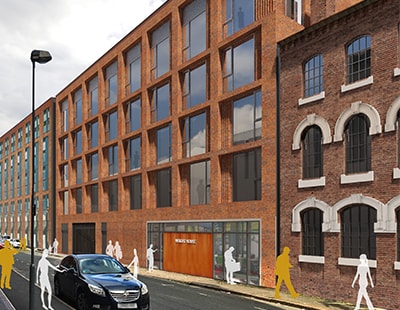The political uncertainty hanging over the UK property market has come into sharper focus since Rishi Sunak announced a general election, says high end estate agency Knight Frank.
In particular, the reform of non dom rules had been causing a degree of hesitation in prime markets since they were proposed in March.
Under the old rules, individuals could be resident in the UK without being taxed on their worldwide income. Chancellor Jeremy Hunt set out plans to limit this period to four years although there were indications he was prepared to loosen the proposals. Not to be outflanked, Labour devised their own tougher rules, which are still to be fleshed out.
The combination of two different sets of proposals and the uncertainty of a general election has understandably caused hesitation in the property market.
Given the near-term outlook for demand in prime central London has deteriorated over the last two months, Knight Frank has revised its forecast and now expect prices to fall by 1% this year, down from a rise of 1% predicted in January. All revisions to its forecasts were made before the election was called.
As a long-overdue period of price inflation kicks in, it expects cumulative growth of 16.4% in the five years to 2028 in PCL.
Meanwhile, the agency’s forecasts for the UK, Greater London, prime outer London, and the prime Country markets have remained the same. These are all markets typically less exposed to political risk that tend to follow economic cycles.
Away from Westminster, the chances of a rate cut in June fell sharply after the release of inflation data for April. Headline inflation fell to 2.3% but services inflation was higher than expected at 5.9%. In a familiar chain of events, swap rates rose, money markets reduced their rate cut expectations and mortgage lenders, keen to lower their rates, were left feeling frustrated.
Despite the bad news for buyers or anyone re-mortgaging, the agency expects demand to strengthen notably once a cut moves onto the agenda, which is what happened in the early weeks of January as sub-4% mortgages made a brief appearance.
It says: “We expect demand will increase as rates begin to fall in the second half of the year. From the summer, there will also be a sharp fall in the number of people rolling off sub-2% mortgages agreed in 2022.”
Sales
| |
UK
|
Greater London
|
PCL
|
POL
|
Prime Country
|
|
2024
|
3.0%
|
2.0%
|
-1.0%
|
2.0%
|
-2.0%
|
|
2025
|
3.0%
|
2.0%
|
3.0%
|
2.5%
|
3.0%
|
|
2026
|
4.0%
|
3.0%
|
4.0%
|
3.0%
|
4.0%
|
|
2027
|
5.0%
|
4.0%
|
4.5%
|
3.0%
|
4.0%
|
|
2028
|
4.0%
|
4.0%
|
5.0%
|
4.0%
|
4.0%
|
|
5 Year Cumulative
|
20.5%
|
15.9%
|
16.4%
|
15.4%
|
13.5%
|
Meanwhile Knight Frank says the normalisation of supply and demand in Prime London has happened more quickly than anticipated, forcing it to revise its forecasts for 2024.
The agency says: “We now expect average rental value growth to be 2% in prime central London this year (versus 5.5% in January) and 2.5% in prime outer London (versus 4.5%). Our rental forecasts between 2025 and 2028 have stayed largely the same or been increased slightly, which is also due to rising political uncertainty.
“Some form of Renters Reform Bill is likely to happen in the short-term, tipping the balance of power towards tenants. That is likely to keep supply in check and upwards pressure on rental values.
“Our lettings forecasts have also increased marginally for the UK and Greater London. Strong rental growth has been underpinned by a structural undersupply of rental housing, as well as a competitive jobs market, high immigration, and rising mortgage costs.
“At the same time supply levels, while showing some signs of improvement, remain tight. The latest RICS survey confirms that the gap between demand and supply in the rental market is still significant.”
And a spokesman for the agency adds: “It is unlikely that rental supply will increase in the next few years at a level that will materially impact headline rental growth. Private landlords in the buy to let sector continue to feel the pinch from higher interest rates and changes to taxation which have resulted in some exiting the sector. Build to rent supply is increasing, but not fast enough to replace the BTL homes lost.”
| |
UK
|
Greater London
|
PCL
|
POL
|
|
2024
|
6.0%
|
5.5%
|
2.0%
|
2.5%
|
|
2025
|
4.0%
|
3.5%
|
3.0%
|
3.0%
|
|
2026
|
3.5%
|
3.0%
|
3.5%
|
3.5%
|
|
2027
|
3.0%
|
3.0%
|
3.5%
|
3.5%
|
|
2028
|
2.5%
|
3.0%
|
3.0%
|
3.0%
|
|
5 Year Cumulative
|
20.4%
|
19.3%
|
15.9%
|
16.5%
|











.png)








Join the conversation
Be the first to comment (please use the comment box below)
Please login to comment